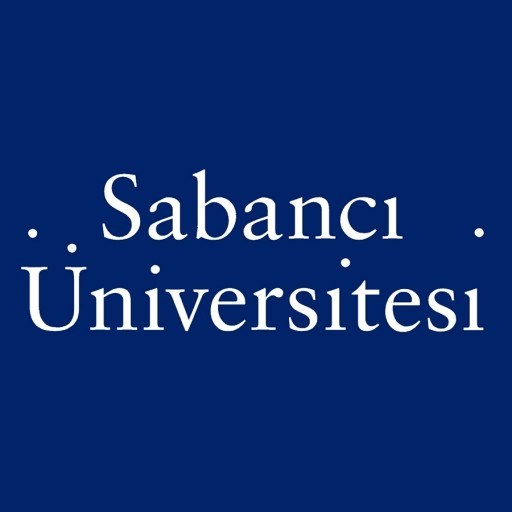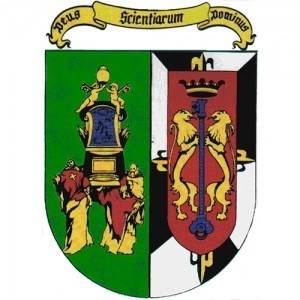Photos of university / #tukaiserslautern
Nanotechnology at the University of Kaiserslautern offers an innovative and comprehensive master's degree program designed to prepare students for the rapidly evolving field of nano-scale science and engineering. This interdisciplinary program combines principles from physics, chemistry, biology, and engineering to equip graduates with the skills needed to develop and implement nanotechnologies across various sectors, including electronics, medicine, energy, and materials science. The curriculum emphasizes both theoretical foundations and practical applications, ensuring students gain a deep understanding of nanomaterials, nano fabrication techniques, characterization methods, and device integration. Throughout the program, students have opportunities to engage in cutting-edge research projects, collaborate with industry partners, and utilize state-of-the-art laboratories to enhance their technical expertise. The program also focuses on fostering innovation, problem-solving, and critical thinking skills, which are essential for addressing complex challenges related to nanotechnology. Graduates of this master's program are well-prepared for careers in research and development, academia, or industry, where they can contribute to the advancement of nanoscience and its applications. Additionally, the curriculum encourages international mobility and cross-cultural exchange, preparing students to operate in global research environments. With a strong emphasis on interdisciplinary learning and practical experience, the Nanotechnology master's program at the University of Kaiserslautern offers a pathway to becoming a leader in the field of nanoscience and nanotechnology innovation. The university’s close ties with industry and research institutions provide students with valuable networking opportunities and access to a dynamic professional community. Upon completion of the program, graduates will possess the knowledge, skills, and innovative mindset needed to drive technological advancements and help shape the future of nanotechnology.
The Master’s program in Nanotechnology at the University of Kaiserslautern offers students an in-depth education in the interdisciplinary field of nanoscale science and engineering. This program is designed to equip students with a robust understanding of the fundamental principles of nanoscience, including nanomaterials, nanofabrication techniques, and characterization methods at the atomic and molecular levels. Students will explore how to manipulate matter on the nanometer scale to develop innovative solutions across various industries, such as electronics, medicine, energy, and materials science.
The curriculum emphasizes both theoretical knowledge and practical skills, incorporating advanced coursework in physics, chemistry, materials science, and engineering. Core modules cover the quantum mechanical behavior of materials, surface phenomena, nanoscale manufacturing processes, and analytical techniques such as electron microscopy and atomic force microscopy. In addition, students are encouraged to participate in research projects, which provide hands-on experience in designing and fabricating nanostructures, analyzing nanomaterials, and utilizing cutting-edge equipment in state-of-the-art laboratories.
The program also focuses on the application of nanotechnology principles to solve real-world problems. Students learn to develop nanodevices and systems, considering factors such as scalability, environmental impact, and safety. Interdisciplinary collaboration is a key aspect of the program, preparing graduates to work effectively in diverse teams and contribute to innovation in industry and academia.
Moreover, the Master’s degree prepares students for doctorate studies or careers in research and development within the nanotechnology sector. The program fosters critical thinking, problem-solving, and innovative design skills, ensuring graduates are well-prepared to meet the challenges of rapidly advancing nanosciences and nanotechnologies. Upon completion, students will be equipped with the knowledge and practical experience needed to advance the frontiers of nanoscience and contribute meaningfully to technological innovation and sustainable development.
Program requirements for the Master's degree in Nanotechnology at the University of Kaiserslautern typically include a completed undergraduate degree in a related field such as physics, chemistry, materials science, or engineering. Applicants are required to demonstrate proficiency in English, usually through standardized tests like TOEFL or IELTS, unless their previous degree was taught in English. A strong background in fundamental sciences and mathematics is essential, especially courses related to nanomaterials, nanoelectronics, or surface science. The application process may also require a motivation letter describing research interests and career goals, as well as letters of recommendation from academic referees who can attest to the applicant’s research capability and academic performance. Some programs may include an interview or assessment to evaluate the applicant’s motivation and suitability for advanced research. It is important that applicants have a solid understanding of laboratory techniques and safety procedures pertinent to nanotechnology research. The selection process considers academic performance, practical experience, and the alignment of research interests with the faculty’s expertise. Additionally, prior research experience or internships in relevant fields can strengthen an application. For admitted students, participation in introductory seminars and courses related to nanotechnology is standard, preparing them for their comprehensive research projects. Overall, these requirements aim to ensure that students are well-prepared for interdisciplinary work in cutting-edge nanosciences and engineering, fostering innovation and technological advancement in the field.
The Nanotechnology master's degree program at the University of Kaiserslautern offers a comprehensive education that prepares students for careers in research, development, and industry. Regarding financing studies, students have several options to support their educational expenses. The university provides information about various funding opportunities, including state-funded scholarships, university-specific grants, and external funding sources. Students can apply for scholarships based on academic excellence, financial need, or specific criteria such as research interests or regional background. Additionally, the university collaborates with numerous industry partners and research institutions that sometimes offer internships and research assistantships, which can provide stipends or financial compensation to students.
International students may have access to government-funded scholarships from their home countries, as well as EU-wide programs supporting study abroad or international research projects. The university's administration advises prospective and current students to explore governmental student loan options available in Germany, as these can help cover living expenses, tuition fees, and educational materials throughout the duration of the program. Furthermore, students are encouraged to seek part-time employment within the university or nearby communities, which is permissible under German regulations, to supplement their income.
It is also beneficial for students to plan their finances in advance by considering cost-of-living factors in Kaiserslautern, including housing, transportation, and daily expenses. The university's financial aid office offers guidance and counseling to help students identify suitable funding sources and manage their budgets effectively. Overall, while specific scholarships dedicated solely to the Nanotechnology program may be limited, students have access to a broad spectrum of financial support options offered by the university and external entities, facilitating the successful completion of their studies without excessive financial burden.
The Nanotechnology Master's program at the University of Kaiserslautern offers students a comprehensive education in the interdisciplinary field of nanoscience and nanotechnology. This program is designed to provide graduates with the necessary skills to understand, manipulate, and develop nanomaterials, nanodevices, and nanosystems across various sectors including electronics, medicine, energy, and materials science. The curriculum combines foundational courses in physics, chemistry, and engineering with specialized modules focusing on nanofabrication techniques, characterization methods, and applications of nanomaterials.
Students have the opportunity to engage in practical laboratory work, gaining hands-on experience with cutting-edge technologies such as scanning electron microscopy, atomic force microscopy, and chemical vapor deposition. The program emphasizes research methodology and innovation, encouraging students to participate in ongoing research projects and industry collaborations. This approach ensures that graduates are well-prepared for roles in research and development, industrial manufacturing, or further academic pursuits.
The program is typically offered in English and is tailored to prepare students for the rapidly evolving demands of nanotechnology industries globally. Students may have access to facilities equipped with state-of-the-art laboratories and research centers dedicated to nanoscience. The interdisciplinary nature of the program fosters collaboration among departments, enabling students to develop a broad perspective on material properties, device design, and system integration at the nanoscale.
Graduates of this master’s program are expected to have a solid understanding of nanoscale phenomena, proficiency in analytical and experimental techniques, and the ability to design innovative nanotechnologies. The program also provides career support through seminars, workshops, and networking events aimed at connecting students with industry leaders and research institutions. Overall, the Nanotechnology Master's at the University of Kaiserslautern aims to develop competent, innovative professionals equipped to contribute to advancements in nanoscience and nanotechnology industries worldwide.









